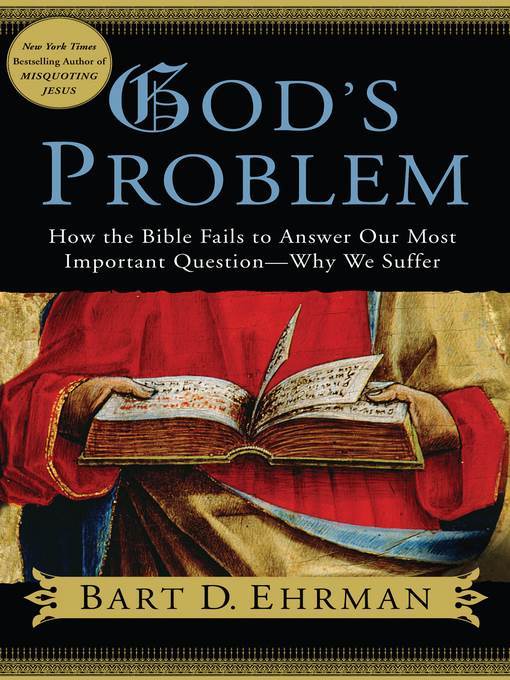
God's Problem
How the Bible Fails to Answer Our Most Important Question--Why We Suffer
کتاب های مرتبط
- اطلاعات
- نقد و بررسی
- دیدگاه کاربران
نقد و بررسی

December 3, 2007
In this sometimes provocative, often pedantic memoir of his own attempts to answer the great theological question about the persistence of evil in the world, Ehrman, a UNC–Chapel Hill religion professor, refuses to accept the standard theological answers. Through close readings of every section of the Hebrew Bible and the New Testament, he discovers that the Bible offers numerous answers that are often contradictory. The prophets think God sends pain and suffering as a punishment for sin and also that human beings who oppress others create such misery; the writers who tell the Jesus story and the Joseph stories think God works through suffering to achieve redemptive purposes; the writers of Job view pain as God's test; and the writers of Job and Ecclesiastes conclude that we simply cannot know why we suffer. In the end, frustrated that the Bible offers such a range of opposing answers, Ehrman gives up on his Christian faith and fashions a peculiarly utilitarian solution to suffering and evil in the world: first, make this life as pleasing to ourselves as we can and then make it pleasing to others. Although Ehrman's readings of the biblical texts are instructive, he fails to convince readers that these are indeed God's problems, and he fails to advance the conversation any further than it's already come.

April 28, 2008
Noted religion scholar and agnostic Ehrman explores the divergent array of biblical perspectives on the essential question of suffering. Ehrman also traces his own journey from belief to doubt as he puts forth a case for why both Old and New Testament teachings fail to reconcile the concept of a loving God with the reality of human misery. L.J. Ganser, a 2005 Audie winner for Russell Shorto's The Island at the End of the World
, sets an animated professorial tone that is appropriate to both the weighty nature of Ehrman's argument and the author's wry, irreverent commentary. Ironically, the musical interludes between the discs—coupled with Ehrman's extensive Scriptural readings—evoke a Sunday School vibe. Ganser gives voice to Ehrman as a thoughtful curmudgeon in the national dialogue about faith; a figure whose challenges to orthodoxy somehow manage to steer clear of the caustic polarization that characterizes much of the current culture war. Simultaneous release with the HarperOne hardcover (Reviews, Dec. 3).

























دیدگاه کاربران